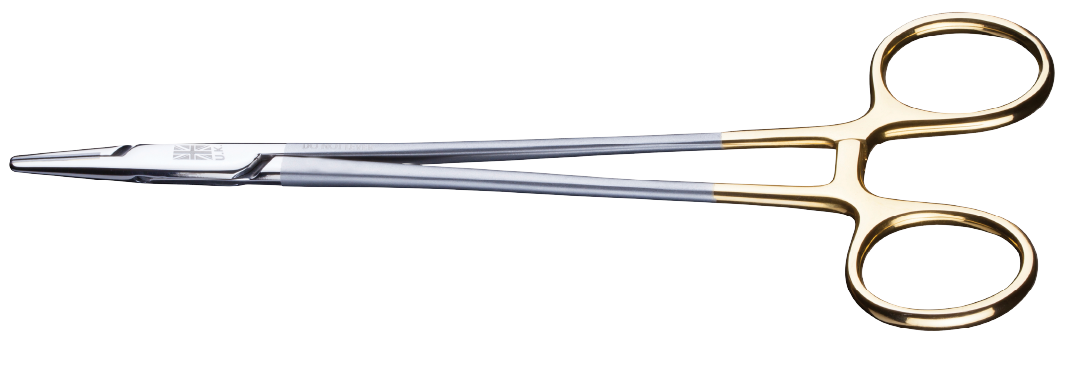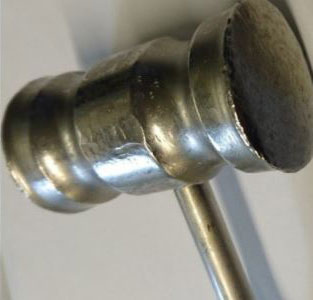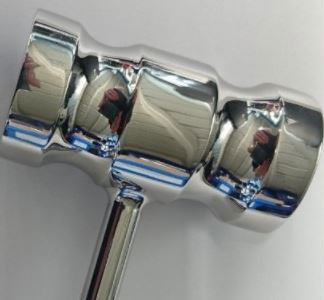
Full Instrument Tray Refurbishment
At Surgical Holdings, we are able to offer a complete refurbishment service at a fraction of the price of new instrumentation. It is a managed system where every instrument on every tray you wish to replace can instead be refurbished and returned in an ‘as new’ condition.
To cut costs, trusts are looking to refurbish their current trays, as opposed to replacing the instruments. Our sales representatives will come and look at trays that you may wish to be refurbished and quote on this service. The instruments will come back to you, as new. If you have a tray that is short of instruments, we’ll include this in the service at a reduced cost.
|
Before Refurbishment |
After Refurbishment |
Maintain your inventory and ensure ongoing performance
Our full tray refurbishment service continues to grow in popularity. Set contents will be refurbished, upcycled or replaced, to ensure continual quality improvement at a huge cost saving.
Read our blog post for a snapshot into our refurbishment process.

Why use Surgical Holdings Full Tray Instrument Refurbishment Service?
- A cost-saving of up to 80% compared to buying new instruments
- Instrument makers handle instruments rather than repair technicians
- Continual upcycle for your set quality
- Enhanced Patient safety
- Surface finish integrity repaired and restored
- A managed service and schedule of repairs
- Open communication from a dedicated account manager
- A quick turnaround of sets for minimal downtime
- Replacement of non-repairable general instruments for the price of repair
- Safer instruments with an 18-month warranty
- Significant environmental CO2 savings
- Proven quality repair processes
- OEM specifications

With thousands of old instruments in circulation throughout hospitals, often surgeons, ODP’s and SSD staff will all be crying out for new instruments. The cost of replacing all instruments for new in one purchase is likely to be very high, so typically instruments are replaced one by one, leaving some instruments in a constant state of disrepair.
Furthermore, with a focus on cross-contamination prevention and iatrogenic vCJD risk transmitted via contaminated surgical instruments, there should be greater care and attention to the condition of old and worn surgical instruments. Studies have shown how surface roughness and condition can directly impact protein adhesion, cleaning efficacy and corrosion resistance.
Read our testimonial from North Devon District Hospital
A Safer Product
Over the years your old instruments will have sustained knocks and dents creating areas of pitting, staining, corrosion and overall damage. By ensuring that all instruments are fully re-polished and re-passivated you improve the surface finish of the instrument. This, in turn, improves cleaning efficacy and therefore reduces the chance of cross-contamination. It also reduces corrosion issues, by polishing out any crevices or pits where water and protein can build up.
We have conducted studies on our manufacturing techniques in comparison to others. For example, our scissor sharpening technique prevents the stainless steel from heating up keeping the inherent hardness within the material. We have shown that this can make the scissor last longer and cut better.

Our skilled technicians inspect every instrument and rectify any poor manufacturing techniques – such as removing crevices where components have not been laser welded together or polishing all box joints to aid in cleaning efficacy. These additional steps ensure the instruments are sent back to you conforming to the highest levels of OEM specifications.
An assessment is also made on any instruments deemed unrepairable. General instruments will be replaced at no extra cost; other specialist items will be separated and returned as received with a quotation for a new replacement.
Read our refurbishment case study for a hospital in SE England
Refurbishment Processes
- Count, check and identify all instruments on the tray log for traceability.
- Sharpen and re-set scissors and scissor needle holders.
- Re-set all articulated instruments e.g. artery forceps, scissors, and needle holders.
- Weld any cracks in the instruments, where a repair is possible, to save replacement.
- Broken or damaged ends - we will repair (this may involve welding and fitting new ends on one-piece instruments), by welding, regrinding, and re-polishing.
- All instruments will be polished/satin-finished/bead blasted (as applicable) to make them as new.
- Replaced TC jaws on needle holders if necessary.
- Non-TC needle holders.
- Re-plate gold bows on needle holders if necessary.
- Replacement of rivets on e.g. box joints, if necessary.
- Re-solder on joints where necessary.
- Racks re-cut e.g. on Artery Forceps.
- Self-retaining retractors replacement/repair of racks and triggers.
- Polishing and refinishing, in line with OEM design.
- When any instrument shows to be corroding, we will passivate to show up any substandard materials that may cross-contaminate other instruments on the tray. If necessary, we will replace the faulty instrument.
- Ultrasonic cleaning and lubricating.
- Laser Marking - We will mark with the department name if required.
- Upon completion of the refurbishment, we will ensure that the instruments on the tray are suitable for re-processing to relevant HTM standards.
See our Full Tray Refurbishment leaflet.


Get in touch with our highly skilled team to discuss your surgical instrument requirements






